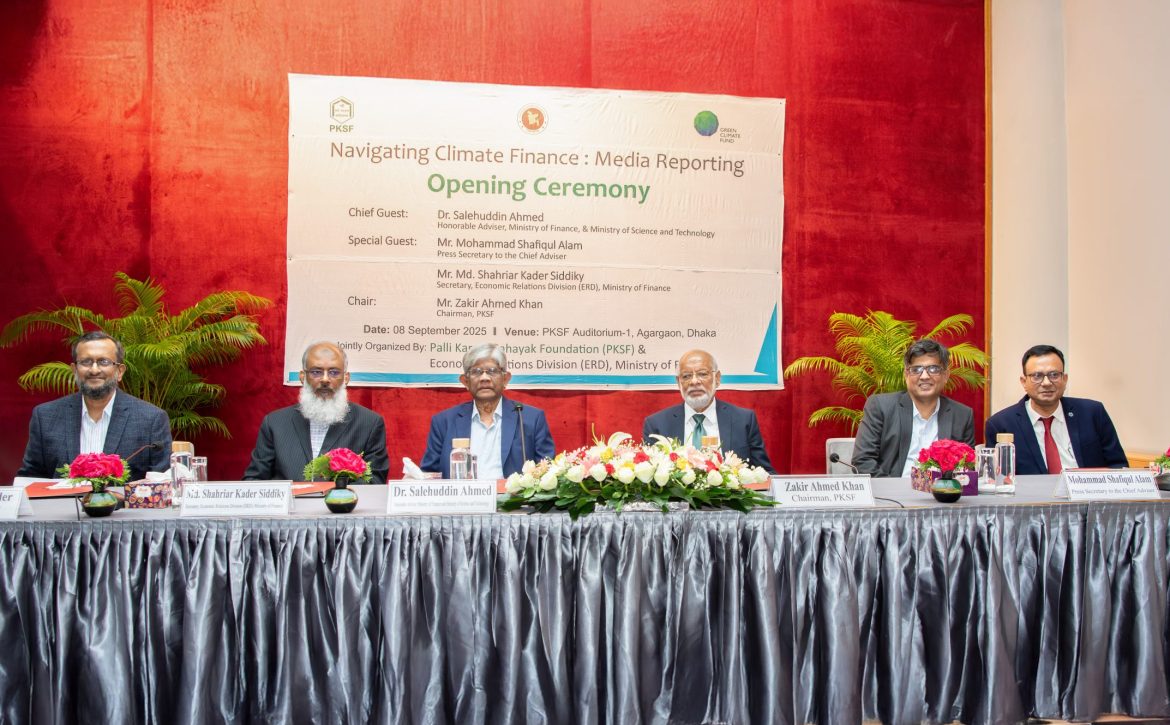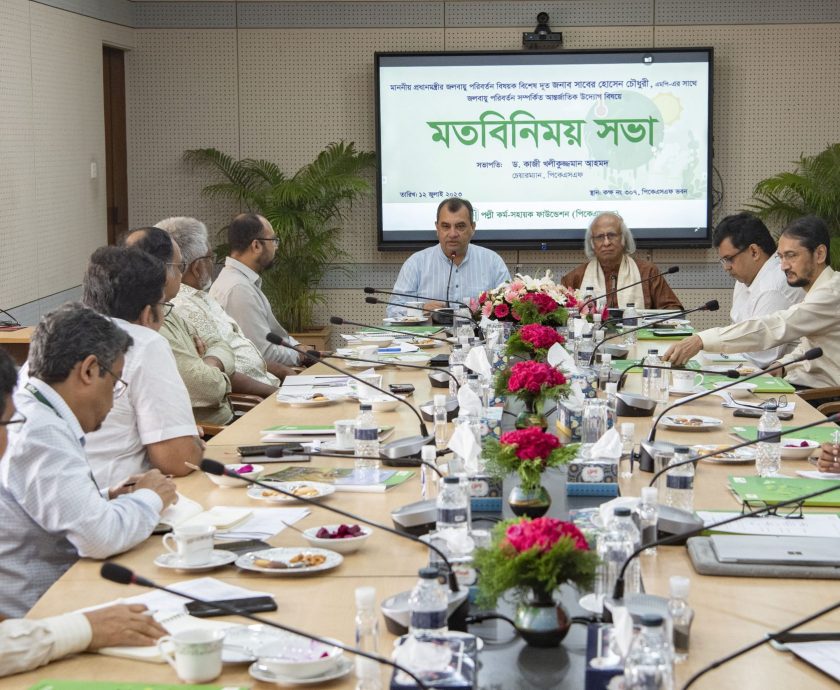Harnessing local capacity, collective action needed to tackle climate impact: Finance Adviser

Finance Adviser Dr Salehuddin Ahmed has called for collective action utilizing local capacity to combat the impacts of climate change. Speaking as the Chief Guest at the opening ceremony of a three-day training titled “Navigating Climate Finance: Media Reporting”, he emphasized that in Bangladesh, local communities are always the first responders in any disaster. He also noted that Bangladesh is among the leading countries globally in disaster management.
The training, jointly organized by Palli Karma-Sahayak Foundation (PKSF) and the Economic Relations Division (ERD), aims to enhance the capacity of journalists in climate finance reporting. A total of 60 journalists from leading media organizations across the country are participating in the training.
Special Guests at the event included the Press Secretary to the Honorable Chief Adviser, Mohammad Shafiqul Alam, and ERD Secretary Md Shahriar Kader Siddiky. The event was presided over by PKSF Chairman Zakir Ahmed Khan. PKSF Managing Director Md Fazlul Kader delivered the welcome speech. ERD Additional Secretary AKM Sohel outlined the objectives of the training.
Dr Salehuddin stressed that addressing climate change effectively requires the coordinated efforts of scientists, policymakers, institutions, financial resources, and the people. He said, “We require around USD 29 billion for climate adaptation, yet our current inflow of funds is minimal.” He also praised PKSF as a world-class organization.
Special Guest Mohammad Shafiqul Alam highlighted the wide-ranging impacts of climate change on the economy, politics, and public health. Urging journalists to bring the stories of affected communities to the global stage, he stated that the government has prioritized climate adaptation and mitigation in its national strategic agenda. He also lauded PKSF’s role in creating an effective grassroots platform for implementation of relevant initiatives.
ERD Secretary Md Shahriar Kader Siddiky remarked that Bangladesh is playing a leadership role in the global climate discourse. “This journey is long, and we all—government, development partners, civil society, private sector, and the media—must work together,” he said. He explained that ERD acts as a bridge in financial engagements with development partners and emphasized the importance of accurate data and information. Reports and data presented by the journalists at international forums, he said, strengthen strategic discussions.
Chairing the session, PKSF Chairman Zakir Ahmed Khan said that PKSF currently works with over 20 million low-income families across Bangladesh. Among its wide-range initiatives, enhancing people’s capacity to adapt to environmental and climate change impacts is a priority area. He expressed hope that journalists would be more skilled in reporting on climate change impacts and finance after the training.
In his welcome remarks, PKSF Managing Director Md Fazlul Kader noted that climate adaptation has been given special importance in PKSF’s Strategic Plan 2025–2030. He called on journalists to play a more proactive role in ensuring climate justice for the people of Bangladesh.
ERD Additional Secretary AKM Sohel said that Bangladesh is among the countries most vulnerable to climate change. Reducing this risk, he said, requires foreign assistance and strong commitment from developed countries. The purpose of this training is to raise public awareness and present Bangladesh’s climate reality on the global stage.


